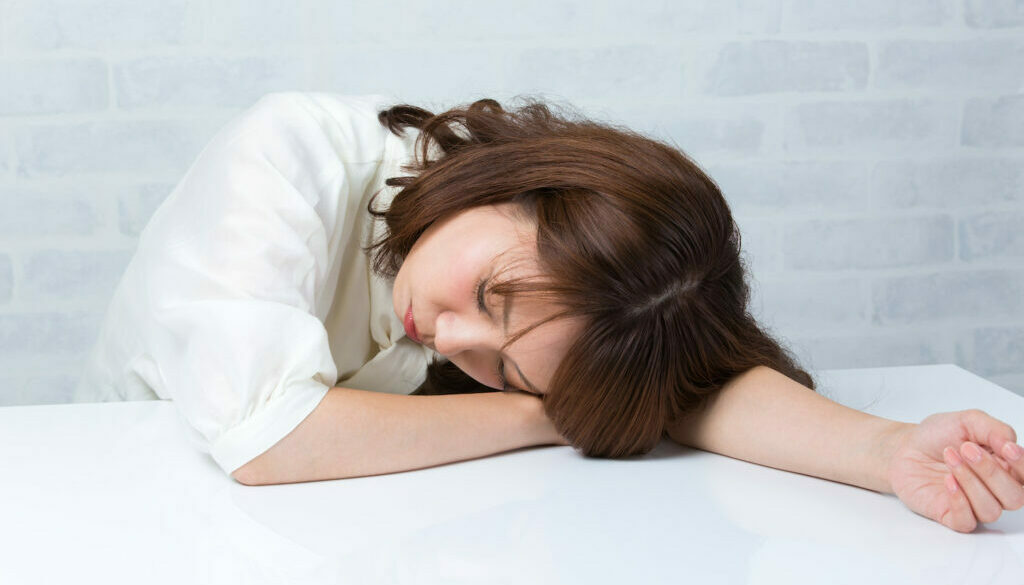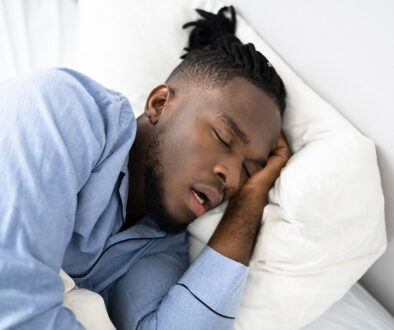A Beginner’s Guide to CPAP Machines
Perhaps it all started with a forceful nudge from your partner during the night to try to stop your snoring. Then came the headaches, the daytime drowsiness—all the classic symptoms of sleep apnea.
Perhaps one of our ENT physicians in Raleigh offered a solution: a CPAP machine. But what is a CPAP machine for sleep apnea, and how does it help you?
We’ll explore what sleep apnea is, how a CPAP machine for sleep apnea works, and reasons you need one to treat your condition.
What Is Sleep Apnea?
Sleep apnea is a condition where the sleeper stops breathing in short intervals hundreds of times during the night. This disorder affects more than 18 million American adults. It can even affect children.
It’s vital to get help for sleep apnea because it can be deadly. The disease puts you at risk for developing more serious health problems such as diabetes, high blood pressure and even stroke.
While snoring is a symptom of sleep apnea, not everyone who snores has the disorder.
This is why it’s so important to be evaluated by one of our ENTs in Raleigh. A sleep study is generally needed to make an accurate diagnosis.
If left untreated, sleep apnea can contribute to serious health problems such as diabetes, heart disease and stroke.
A CPAP machine for sleep apnea is a standard treatment.
5 Reasons You Need a CPAP Machine for Your Sleep Apnea
What is a CPAP machine for sleep apnea?
CPAP stands for Continuous Positive Airway Pressure. A CPAP machine is a small device that has a mask and flexible tubing. You wear the mask while you sleep. Oxygen is delivered through the mask, providing a gentle, constant stream of air. This pressure keeps your airways open throughout the night.
The tubing is long enough to enable you to turn over in your sleep, and the machine itself doesn’t make loud noises, so you and your partner won’t be awakened by it.
5 Reasons to Use a CPAP Machine for Sleep Apnea
While there are several benefits to using a CPAP machine for sleep apnea, here are the five main reasons you should use one if you have sleep apnea:
1. Sleep Apnea Can Cause Severe Health Problems if Not Treated
We’ve mentioned earlier some of the health issues that can arrive as a result of sleep apnea. These include:
- Stroke
- Irregular heartbeats
- Enlargement of heart muscles
- Obesity
- Heart attacks
- Heart failure
Because a CPAP machine is instrumental in treating sleep apnea, it can go a long way toward reducing your risk for developing these disorders.
2. A CPAP Machine for Sleep Apnea Can Help Improve the Quality of Your Sleep
Sleep is not just a matter of getting 8 hours of rest a night. It’s important to have quality sleep that leaves you feeling refreshed and ready for the day.
According to the National Sleep Foundation, the following factors are considered when measuring the quality of sleep:
Sleep Latency: This indicates how long it takes you to fall asleep. Drifting off to slumberland is best when it’s done in 30 minutes or less.
Sleep Waking: This measures how often you wake up during the night.
Sleep Efficiency: This is the amount of time you actually spend sleeping.
3. Those Who Use CPAP Machines Experience Less Daytime Drowsiness
Everyone has drowsiness from time to time. However, if this continues, it can cause problems with work or school. It can even interfere with family activities. If your job involves driving or operating machinery, it can even be dangerous. In addition, drowsiness can dramatically impact the quality of your life.
4. CPAP Machines Can Help Control Blood Sugar
This is particularly relevant for those who have diabetes. A good night of quality sleep can help your overall health—and that includes your blood sugar and A1C levels. A CPAP machine can help you achieve that quality sleep.
5. CPAP Machines Can Help Improve Your Concentration
Sleep apnea leads to drowsiness. When you’re drowsy you’re more likely to be frustrated or even depressed. This makes it difficult for you to focus on that big presentation or prepare for that final exam. No matter what your occupation, lack of sleep makes it difficult to concentrate on the task at hand.
How Does a CPAP Machine Work?
A CPAP machine pressurizes air to keep your tongue and soft palate from pushing into your airway.
A CPAP machine has a small motor that serves as a compressor. This enables the machine to take air from the room and filter it through a tube. This flexible tube is then attached to a mask. The mask is placed around your nose or mouth.
When the air travels through the tube, into the mask, and into your system, the pressured air opens your airways. As a result, your lungs have the oxygen they need.
The result? More stable breathing and improved sleep quality.
Tips on Using Masks for Your CPAP Machine
There are different types of masks you can use with your CPAP machine:
- A mask that covers only your nose
- One that covers both your nose and mouth
- “Nasal pillows” that fit in your nostrils.
The type of mask you use is not as important as ensuring it is a good fit. Your CPAP units may have a “ramp” setting. This enables your CPAP machine to start the air pressure at a low level, gradually increasing it until it reaches the optimum level to treat your sleep apnea. This will help you fall asleep more comfortably.
Other Useful Information for Using Your CPAP Machine
It might take a while to get used to your CPAP machine. Remember that this is a lifestyle change and it may take time. Following are some suggestions to help you get started:
- Start by wearing your mask for short periods during the evening. For example, wear it while watching TV or reading.
- Use the CPAP every night. This is important not only for its effectiveness, but to help you get used to it. If you don’t use it consistently, it’s more difficult for your body to adjust.
- Use your CPAP when you take a nap.
- Your CPAP should feel natural when you’re trying to fall asleep—so don’t be discouraged if it takes time.
- Be sure your mask is adjusted properly—a good fit is vital for effective therapy.
- If the pressure feels too high, you can use the “ramp” mode on your CPAP unit.
- Your CPAP works best when you use it for the entire night, so be consistent in your use.
- You may wish to use a special pillow that is shaped to accommodate CPAP equipment.
- Clean your equipment regularly.
Using a CPAP machine may be a challenge at first, but the benefits far outweigh the temporary inconvenience.
However, sometimes there are structural problems with the throat that may require surgical intervention. At Raleigh Capitol ENT, we provide surgical options for obstructive sleep apnea.
What Are the Symptoms of Sleep Apnea?
- Morning headaches
- Difficulty remembering or learning
- Difficulty concentrating
- Daytime sleepiness
- Dry mouth or sore throat upon awakening
- Irritability
- Depression or mood swings
People at greatest risk for developing sleep apnea are those who are overweight, those with a family history of sleep apnea, those with enlarged tonsils, and those with smaller airway passages in the nose, throat, or mouth. While children can have sleep apnea, the risk for the condition increases with age.
Raleigh Capitol ENT Physicians Are Experts at Treating Sleep Apnea
Quality sleep is not a luxury—it is vital to your health! Not only does it boost productivity and improve your mood, it also strengthens your immune system. Poor sleep may be caused by sleep apnea.
Only one of our ENTs in Raleigh can determine the best course of treatment to help you catch some quality Zzzzz’s and help safeguard your health.
Have you shown the symptoms of sleep apnea mentioned above? If so, schedule an appointment today.
This post has been updated from it’s original post date on June 11, 2018.




